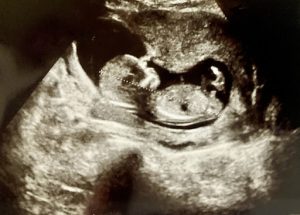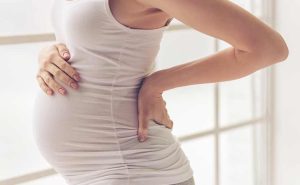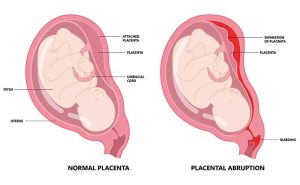Introduction
Are there any pregnant women who have been diagnosed with dyslipidemia/hyperlipidemia during a prenatal checkup and are worried? Additionally, there may be individuals who are hoping to become pregnant but are concerned about the impact of dyslipidemia/hyperlipidemia.
On this page, we will explain the relationship between pregnancy and dyslipidemia/hyperlipidemia, and introduce dietary measures to improve dyslipidemia/hyperlipidemia.
What is Dyslipidemia/Hyperlipidemia?
Dyslipidemia refers to a condition where the levels of lipids in the blood deviate from the standard values. Abnormalities in lipids include abnormal blood concentrations of LDL cholesterol, HDL cholesterol, and triglycerides (neutral fats), all of which are associated with the promotion of atherosclerosis.
Hyperlipidemia is the former name for dyslipidemia, and the term was changed to dyslipidemia in 2007.
According to the “Guidelines for Prevention of Atherosclerotic Cardiovascular Diseases 2017” by the Japan Atherosclerosis Society, the diagnostic criteria for dyslipidemia/hyperlipidemia based on fasting blood samples are: high LDL cholesterol → 140 mg/dL or higher, high triglycerides → 150 mg/dL or higher, and low HDL cholesterol → less than 40 mg/dL.

Dyslipidemia/Hyperlipidemia During Pregnancy
Symptoms of Dyslipidemia/Hyperlipidemia During Pregnancy
Dyslipidemia/hyperlipidemia itself often does not have any noticeable symptoms; there is usually no pain or visible changes. This is also true during pregnancy, where symptoms are often absent.
However, if dyslipidemia/hyperlipidemia progresses, it can lead to atherosclerosis, which may cause high blood pressure and increase the risk of myocardial infarction or stroke.
Causes of Dyslipidemia/Hyperlipidemia During Pregnancy
During pregnancy, fat synthesis is promoted from the early stages (up to 13 weeks and 6 days) through to the mid-stages (14 weeks and 0 days to 27 weeks and 6 days). As a result, there is an increase in body weight and fat tissue, which leads to higher lipid levels in the blood.
Therefore, pregnant women may exceed the standard values for dyslipidemia/hyperlipidemia.
Some pregnant women may be flagged for abnormal values during workplace health checkups, but most of these are physiological changes due to pregnancy.
If abnormal values persist after childbirth, treatment may be necessary; however, if the values return to normal, there is no cause for concern.
Treatment of Dyslipidemia/Hyperlipidemia During Pregnancy
As explained so far, an increase in blood lipids during pregnancy is rarely a problem.
So, what should those who have been treated for dyslipidemia/hyperlipidemia before pregnancy do during pregnancy?
Many medications for treating dyslipidemia/hyperlipidemia are contraindicated for pregnant women. It is important to inform your primary care physician if you wish to become pregnant so that an appropriate treatment plan can be established.
Effects on the Fetus
The increase in blood lipids during pregnancy is considered physiological and is thought to occur because it is necessary during pregnancy. Therefore, even if blood lipid levels increase during pregnancy, it is believed that there is a low likelihood of any impact on the fetus.
Dyslipidemia/Hyperlipidemia While Trying to Conceive
Symptoms of Dyslipidemia/Hyperlipidemia While Trying to Conceive
As mentioned above, dyslipidemia/hyperlipidemia often has no noticeable symptoms, and this is also true for those trying to conceive.
It is often detected during health checkups or similar examinations.
Causes of Dyslipidemia/Hyperlipidemia While Trying to Conceive
While trying to conceive, since you are not yet pregnant, there are no specific reasons for an increase in blood lipids.
However, stress from trying to conceive, overeating, and lack of exercise can lead to increased blood lipid levels due to lifestyle disturbances.
It is important to note that dyslipidemia/hyperlipidemia is believed to potentially cause difficulties in becoming pregnant.
Additionally, there are many cases where dyslipidemia/hyperlipidemia is accompanied by obesity. Obesity is said to increase the risk of infertility, so those who are obese should consider weight loss as well.
If you are trying to conceive or considering pregnancy, inform a specialist about your situation and seek appropriate guidance.
Treatment of Dyslipidemia/Hyperlipidemia While Trying to Conceive
Many medications for treating dyslipidemia/hyperlipidemia are contraindicated for pregnant women. If you are receiving treatment for dyslipidemia/hyperlipidemia while trying to conceive, be sure to inform your healthcare provider that you are trying to conceive so that a treatment plan can be established that is safe for pregnancy.
Diet for Dyslipidemia While Trying to Conceive
To smoothly progress with your efforts to conceive, it is important to improve dyslipidemia. Here, we will explain dietary measures to improve dyslipidemia.

High LDL Cholesterol
For high LDL cholesterol, it is important to limit the intake of foods high in cholesterol, saturated fats, and trans fats.
Foods to avoid (though not entirely prohibited):
- Foods high in cholesterol: Eggs, liver, eel, salmon roe, cod roe, etc.
- Foods high in saturated fats: Fatty meats, butter, lard, etc.
- Trans fats: Margarine, shortening, etc.
High Triglycerides
For hypertriglyceridemia, it is important to limit the intake of foods high in carbohydrates. Especially avoid sweets and soft drinks. Additionally, excessive consumption of fruits and grains can also increase the risk of hypertriglyceridemia, so be mindful of consuming them in moderation.
What You Can Do to Have a Healthy Baby
The desire to have a healthy baby is something that every expectant mother and those trying to conceive share.
As an option for having a healthy baby, there is NIPT (Non-Invasive Prenatal Testing).
Hiro Clinic NIPT Tests
NIPT (Non-Invasive Prenatal Testing) is a test that estimates the amount of baby-derived DNA in the mother’s blood to check for chromosomal abnormalities such as Down syndrome (trisomy 21), Edwards syndrome (trisomy 18), and Patau syndrome (trisomy 13).
While it is not a definitive diagnosis like amniocentesis or chorionic villus sampling, for Down syndrome (trisomy 21), NIPT features a high sensitivity of 99.9% and a specificity of 99.90%, indicating a high level of accuracy.
Since it can be performed with just a blood sample, there is minimal risk associated with the test.
One of its advantages is that it can be conducted as soon as pregnancy is confirmed via ultrasound, allowing for earlier testing compared to other prenatal diagnostic methods.
Additionally, at Hiro Clinic NIPT, the NIPT test is outsourced to the “Tokyo Health Testing Center” in Bunkyo, Tokyo. Therefore, we can deliver results faster compared to NIPT (Non-Invasive Prenatal Testing) conducted by overseas testing agencies.
Precautions When Taking NIPT (Non-Invasive Prenatal Testing)
NIPT (Non-Invasive Prenatal Testing) is something that many people consider undergoing for peace of mind, but it is important to keep in mind that positive results can also occur. It is crucial to think in advance about what to do in such cases before taking the test.
Conclusion
If blood lipid levels increase during pregnancy, there is usually no cause for concern. However, having dyslipidemia/hyperlipidemia while trying to conceive can make it more difficult to become pregnant.
To have a healthy baby, it is important to pay attention to your health and diet even before pregnancy.
Additionally, once pregnancy is confirmed via ultrasound, it is possible to examine the baby’s chromosomes with NIPT (Non-Invasive Prenatal Testing). If you decide to undergo the test, make sure to discuss with your family how to proceed after receiving the results.
It’s important to start taking small steps during pregnancy and even while trying to conceive to do what you can for your baby’s health.
【References】
- Dyslipidemia (e-Health Net) – Dyslipidemia | e-Health Net (Ministry of Health, Labour and Welfare)
Article Editorial Supervisor

Dr Hiroshi Oka
NIPT specialist clinic, MD
Graduated from Keio University, School of Medicine
 中文
中文






















